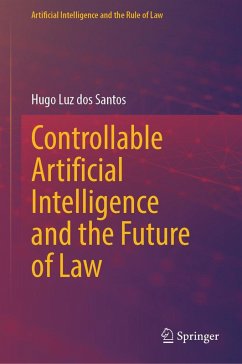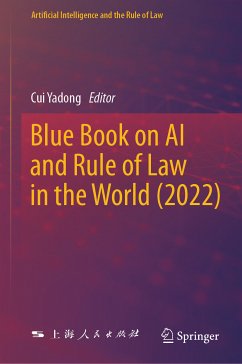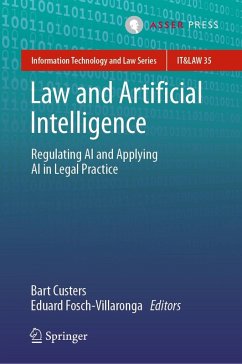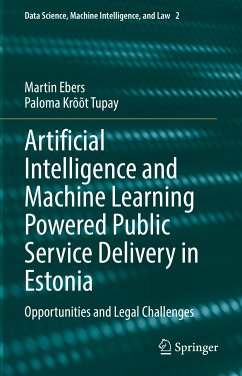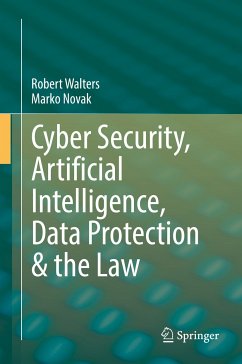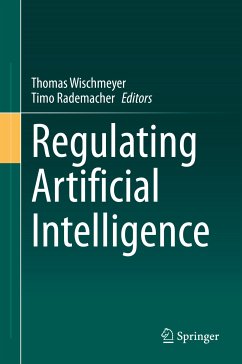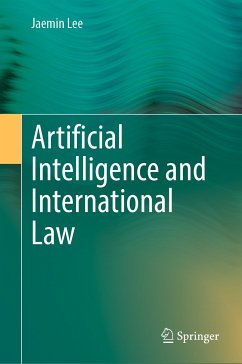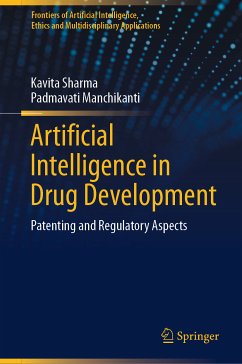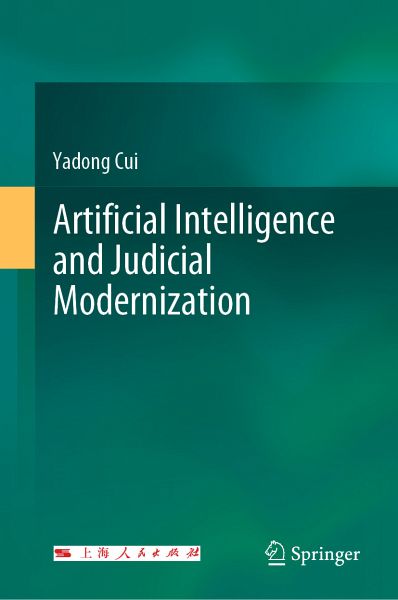
Artificial Intelligence and Judicial Modernization (eBook, PDF)
Versandkostenfrei!
Sofort per Download lieferbar
96,95 €
inkl. MwSt.
Weitere Ausgaben:

PAYBACK Punkte
48 °P sammeln!
This book comprehensively describes the status quo of artificial intelligence technology applications in the judicial field in China. Written by Cui Yadong, the former President of Shanghai Senior People's Court, it is divided into three parts: the first part focuses mainly on the theoretical issues related to artificial intelligence and judicial applications. The second part highlights practical aspects, discussing the research and development process, the implementation of the"206 system" and the major breakthroughs. The third part then addresses lessons learned and the thinking, particularl...
This book comprehensively describes the status quo of artificial intelligence technology applications in the judicial field in China. Written by Cui Yadong, the former President of Shanghai Senior People's Court, it is divided into three parts: the first part focuses mainly on the theoretical issues related to artificial intelligence and judicial applications. The second part highlights practical aspects, discussing the research and development process, the implementation of the"206 system" and the major breakthroughs. The third part then addresses lessons learned and the thinking, particularly the thinking on "building the future rule of law of artificial intelligence", a new topic that responds to people's concerns about the risks and challenges of the development of artificial intelligence. In this context, the book argues that the judicial task is twofold: On the one hand, it should actively promote the integration and application of AI in the judiciary, judicial intelligence, andjudicial modernization. On the other hand, it should encourage the construction of a future rule of law system of artificial intelligence, highlight the role of the judiciary in dealing with future risks and challenges, bring the development of artificial intelligence into line with the rule of law, and use the rule of law to promote, standardize and guarantee the safe, reliable and controllable development of artificial intelligence.
Dieser Download kann aus rechtlichen Gründen nur mit Rechnungsadresse in A, B, BG, CY, CZ, D, DK, EW, E, FIN, F, GR, HR, H, IRL, I, LT, L, LR, M, NL, PL, P, R, S, SLO, SK ausgeliefert werden.



